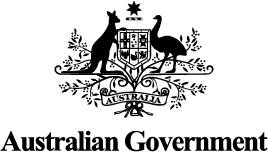On 28 March 2025 the government assumed a Caretaker role. Information on websites maintained by the Department of Climate Change, Energy, the Environment and Water will be published in accordance with the Guidance on Caretaker Conventions until after the conclusion of the caretaker period.
Inspector-General of Water Compliance examining water allocation concerns
Inspector-General of Water Compliance examining water allocation concerns
The Inspector-General of Water Compliance the Hon. Troy Grant has received multiple representations from stakeholders in the NSW Murray and Murrumbidgee regions seeking greater transparency for water allocation determinations.
“What is clear is that NSW water allocations are a longstanding area of concern,” Mr Grant said.
“There is more than a century of negotiations and agreements which underpin how water is shared on the Murray.”
“I caution against thinking there is a quick fix or simple changes to be made immediately.”
“It is a fully allocated system which means to give to one you must take from another,” he said.
“Having lived in the Basin, I understand the challenges faced every day by the people who grow our food and fibre. I also acknowledge the frustrations of farmers in these districts who are looking to recover from difficult years with low inflows and low allocations,” Mr Grant said.
“Water users want to better understand the levers that drive general allocation decision making. “They know that being better informed will assist them in making cropping decisions in the future.”
Mr Grant said his Office is four weeks into a new era of water compliance in the Murray-Darling Basin.
“My compliance priorities in the first year are very clear: We are checking on metering reform, assessing the effectiveness of water agencies and taking a good look at ground water compliance with sustainable limits,” he said.
“Allocation issues are symbolic of a range of stakeholders’ concerns in the NSW Murray region. As such, I have already commissioned various pieces of work to systemically assess the effectiveness and performance of State and Commonwealth water agencies,” Mr Grant said.
The Office of the Inspector-General of Water Compliance has three major reviews underway:
- A review into the operation of the Murray and lower Darling Rivers will look into some of the key drivers of allocation decisions. These include how well water is being measured and modelled at both the Basin and valley scale for conveyance losses and bulk state water shares. There will be an assessment of hydrometric data coverage and quality, and associated data analysis processes.
- A review of the Commonwealth Environmental Water Holder’s (CEWH) processes for planning, managing and delivering environmental water each year
- A detailed analysis of each Basin jurisdiction’s water compliance systems is being undertaken by Des Pearson, the former Victorian Auditor-General. Part of this will look at how States measure and determine the volumes of water that have been taken and any barriers to ensuring compliance.
Mr Grant said: “On top of these projects, we’ll also be meeting with and listening to people on this issue. I have recently appointed field officers based in Mildura (Vic), Albury (NSW) and Loxton (SA) and they will be talking with water users, relevant agencies and others to gain an understanding of the various issues including allocations.
“Combined with the outcomes of our reviews, I expect this will show some clear next steps,” he said.
“The Office’s highest priority is to ensure that communities and stakeholders understand we operate transparently and with integrity,” Mr Grant said. “We intend to take steps towards building trust across the Basin, which is part of a brand new function I have been tasked with as the Inspector-General of Water Compliance. We’ll do this thoughtfully, carefully and based on evidence.”
The priorities, objectives and workplan of the Office of Inspector-General of Water Compliance are published on the IGWC website.





